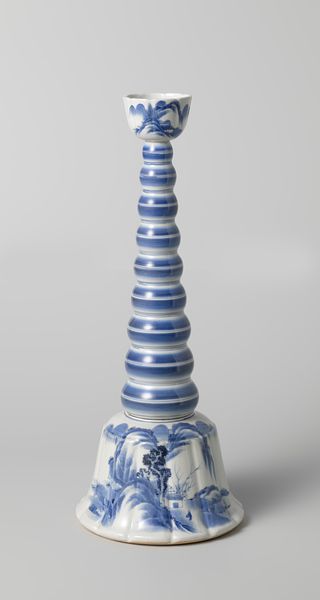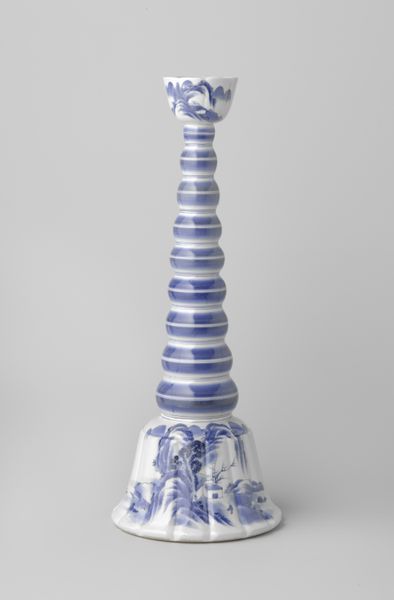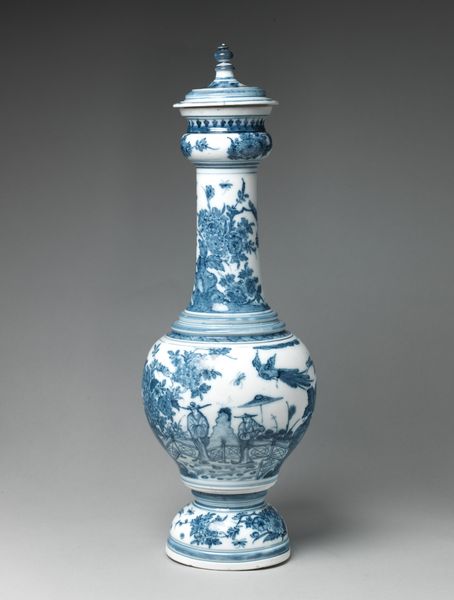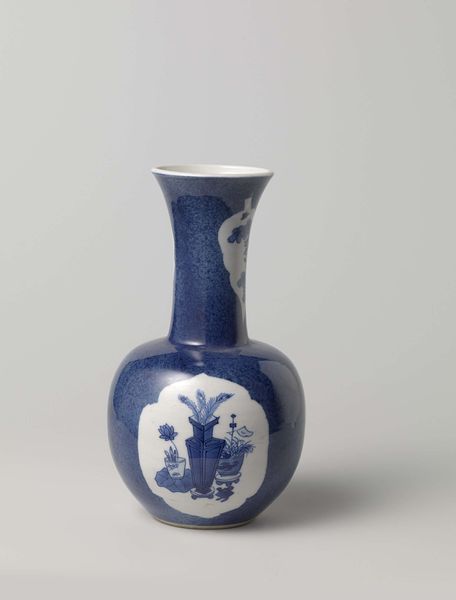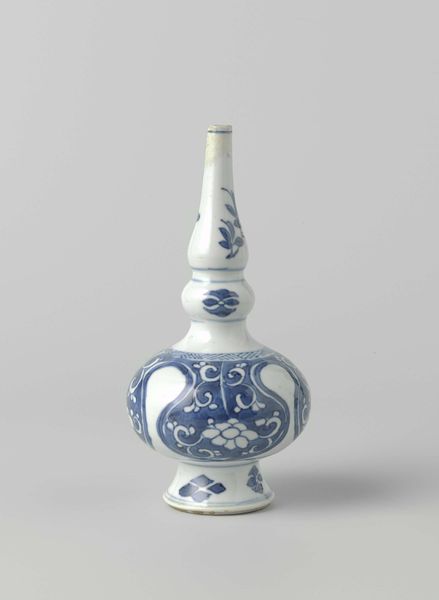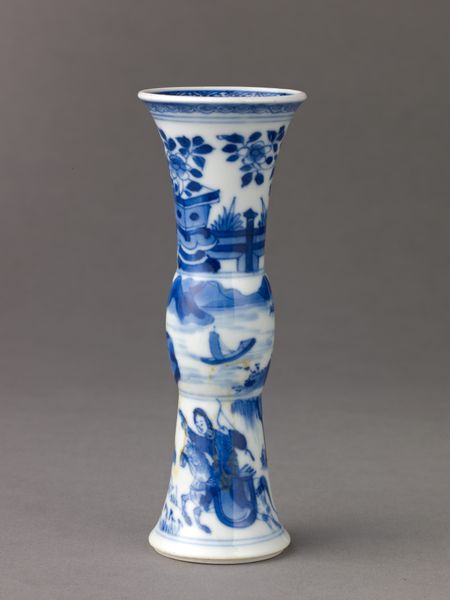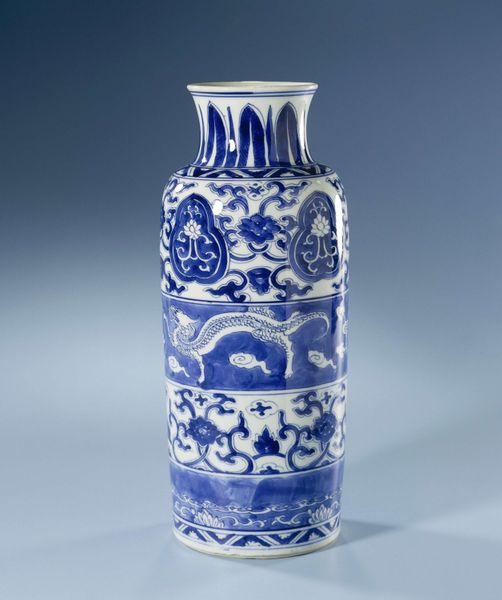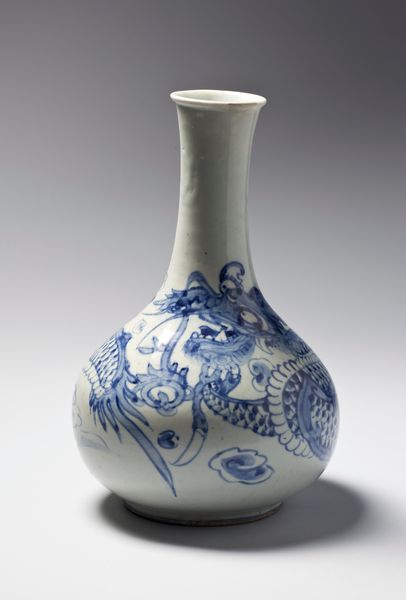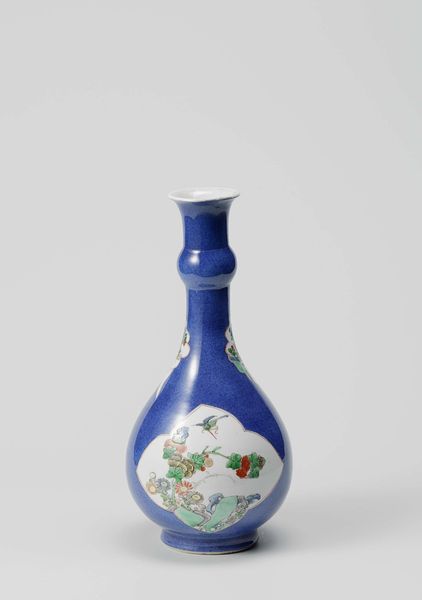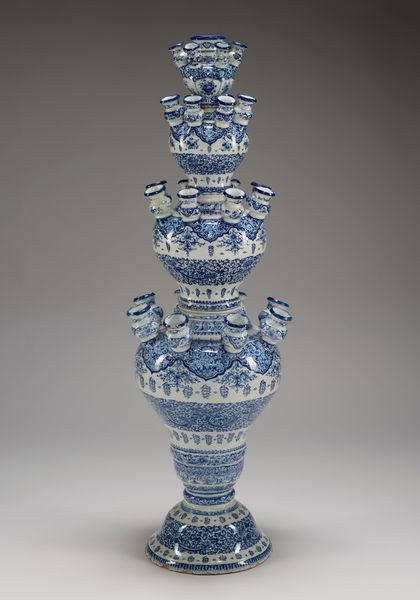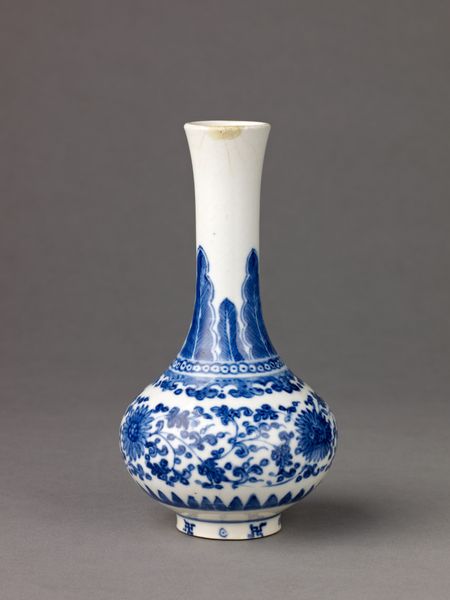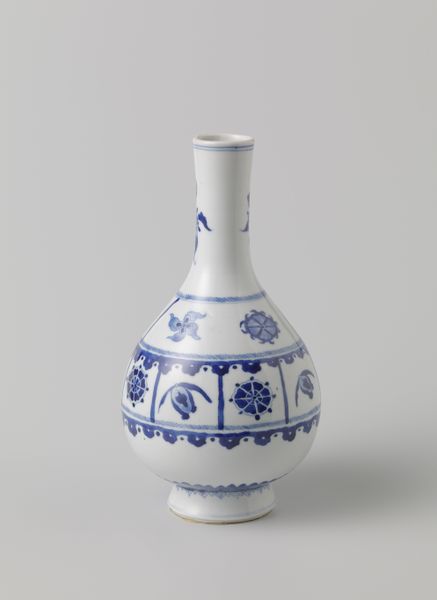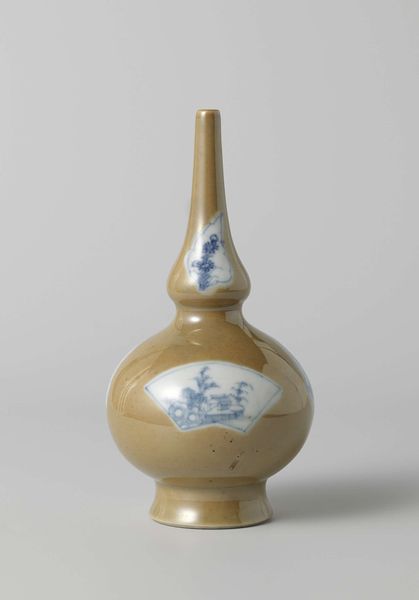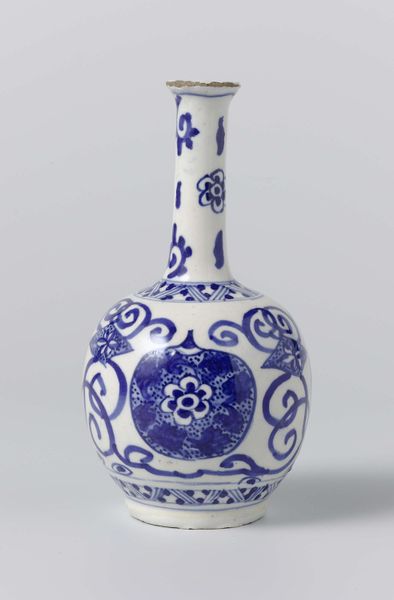
Candlestick with a conical bulb stem and candleholder and base with a water landscape c. 1775 - 1799
0:00
0:00
anonymous
Rijksmuseum
ceramic, earthenware
#
ceramic
#
earthenware
#
orientalism
#
ceramic
#
decorative-art
Dimensions: height 44.1 cm, diameter 6.8 cm, diameter 17.6 cm
Copyright: Rijks Museum: Open Domain
This is a candlestick made of tin-glazed earthenware. The anonymous artist, working presumably in the Netherlands, decorated the piece with blue paint, a popular style in the region. Blue and white earthenware was the dominant ceramic style in the Netherlands in the 17th century. At this time, the Dutch East India Company imported large quantities of porcelain from China. Dutch potters began imitating Chinese porcelain and the imitations were more affordable, meaning more Dutch households could decorate with this style. The Chinese landscape decoration on the base, therefore, isn't merely decorative, but an indication of the Netherlands' trading power at the time and the democratizing effect of artistic imitation. Historians investigate pieces like this by looking at trade records, archaeological finds, and the inventories of households. By studying the material culture of a period, we can learn about the social forces that shaped artistic production.
Comments
No comments
Be the first to comment and join the conversation on the ultimate creative platform.
